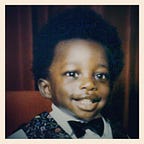Every so often something comes along and it feels like the start of something great. If you haven’t seen the recent phenomenon of the Hood Documentary on YouTube and its protagonist, Roll Safe, let me explain to you why this should be made into a fully fledged TV show.
Hood Documentary is a mockumentary set in the streets of South East London and follows the comings and goings of Reece, aka Roll Safe (yes, really). Roll Safe, or RS for short is a young man who is trying to avoid a life of crime and break into the entertainment industry. We see him trying to act and spit bars, as well as meeting some of his friends and associates along the way.
Hood Documentary is the brainchild of 21 year old Kayode Ewumi and childhood friend, Tyrell Williams. In the three months since the first episode was uploaded onto YouTube, it currently has over one and a half million views, with the second episode not far behind. Roll Safe also went on BBC’s urban radio station, 1Xtra and performed a Fire in the Booth for the station. This has gained three million views.
It is easy to see why Hood Documentary, and in particular, RS has become so popular so quickly. Above everything else, Kayode’s portrayal of a young man living in South East London is funny. RS is annoying, he’s rude and childish. He believes he knows it all, but his actions show he doesn’t have a clue. RS has spawned memes, videos, and remixes all over Instagram and Twitter. I have personally seen teenagers recite RS’s lyrical bars word for word like it was a song that has received heavy airtime on the radio.
However, if you look past the comedic banter and catchphrases, the character RS can be seen as a representation of a lot of young people living in inner city areas in England. Torn between education and a life of violence and crime, many use music as not only as a means of expressing themselves, but also a way out of the ‘hood’. This is highlighted in the first episode of Hood Documentary, where the camera crew catches RS reading an economics book, and he shuts it, ashamed of being caught. RS would rather be known as a self proclaimed ‘hood celeb’ rather than a studious young person. As someone who works in education, watching the Hood Documentary, brought many current themes to mind. RS’s personality also brought to mind many of the young people I’ve worked with in the past, and presently too.
In both episodes, RS is brimming with confidence, making hyperbolic claims to things he has done and owns, however when he is questioned, he tends to run off or respond rudely. This has been a common theme with the young people I have worked with, who have lots of ideas of how they want to make money, but when questioned on how they plan on achieving their goals, they become stuck. This then leads them to try out courses or career paths that are either unsuitable for them, or have no real interest in. RS wants to be an MC, but doesn’t really have any visible talent in music.
But all young people need someone to believe in them. At the beginning of the second episode, the narrator asks a Youth Worker why RS was chosen to be in the Hood Documentary. He responds: “I give you Reece because…of his ambition. His ambition is unmatchable…in my heart he’s already a winner”. RS, like many young people, are by no means a polished product. They may be abrasive, have no idea how to conduct themselves around people in senior positions. However, they do have masses of potential.
RS is a young person who is unsure of himself and the world around him, trying to navigate himself into something positive. This is a common theme with all young people, and this story has been told millions of times before, from Happy Days to Dawson’s Creek to The Inbetweeners. Yet, these shows are usually set in far off places, and rarely have any characters from minority backgrounds in them. Although Hood Documentary is set in South East London, this show would give a voice to millions of young people that live in places like London, Birmingham and Manchester. Even if young people couldn’t relate to the physicality of RS, they would be able to relate to the situations he finds himself in.
The most important aspect of youth programming is authenticity. Young people want to see things that are plausible, not improbable. Hood Documentary and its content is created by young people, for young people. Ewumi himself is a role model for young people as he is an articulate black man, who has grafted and made opportunities for himself, who handles himself even when put into awkward situations, as seen in this interview.
Although Hood Documentary has gained a huge following, after two episodes Ewumi tweeted that he is taking a break from RS to “pursue other projects in other genres”, which personally I think is a massive shame. Perhaps he could be persuaded to put on that now infamous leather jacket and lisp by a TV channel. Making Hood Documentary in a TV programme wouldn’t just be about making a funny show, full of London street slang and banter. It would give a voice to thousands of young people, an education for people and policy makers that have no idea, and quite possibly start an important conversation around how best to empower and support a generation of inner city young people. It could also potentially fill a void in black British TV that hasn’t been filled in years.
And maybe, just maybe, it may alter the thinking of a few young people for the better.
Roll Safthe.
